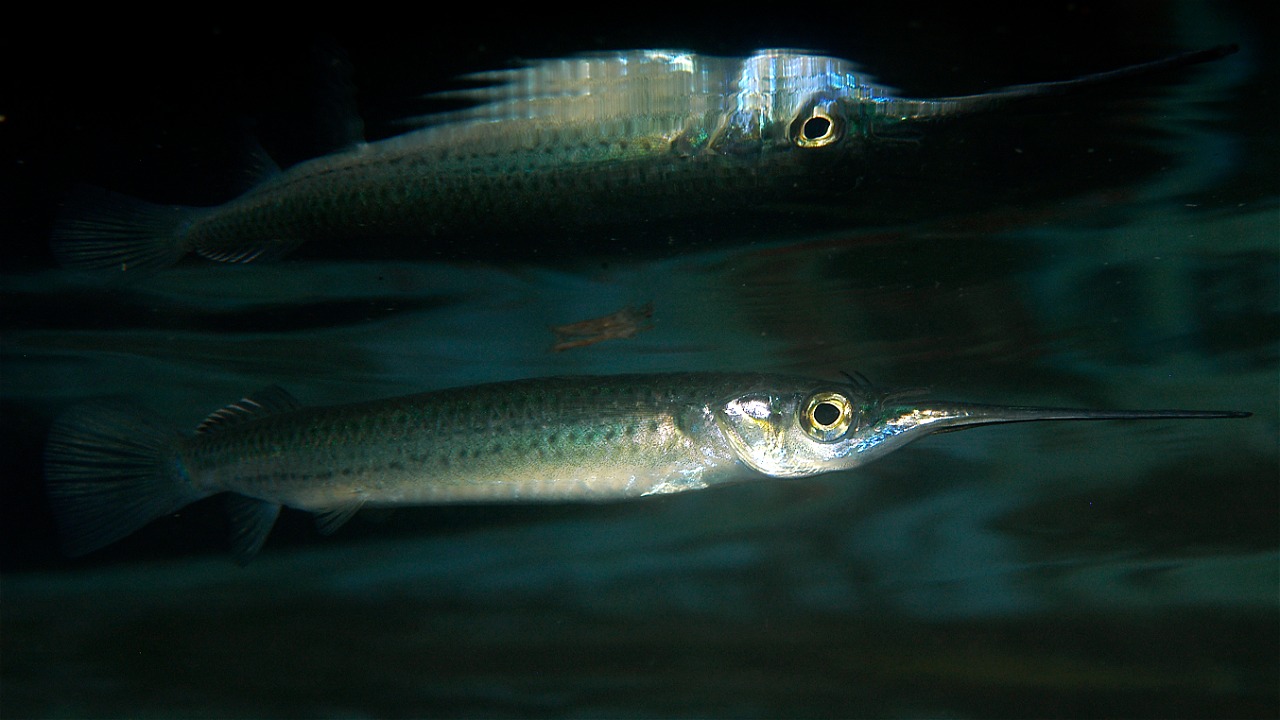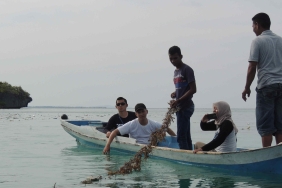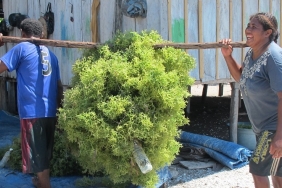SAMBAL JULUNG MAKING PRACTICE IN ARO HAMLET, PETUANAN KATALOKA
By: Aliana nafsal, Fisheries officer WWF Indonesia, IBAS
The Watu Mariri group is one of WWF-Indonesia's assisted groups located in Aroa Hamlet, Petuanan Kataloka. The group, which is engaged in catching and processing julung-julung fish catches, requires its members to pay a basic fee as an entry contract and compulsory fees according to the agreement every month. The formation of the group, which was ratified on September 26, 2016, has followed financial training by WWF-Indonesia which aims to make the financial statements of the group more organized and transparent. However, in practice, the financial report of the julung-julung fish processing activity is still limited to the smoking process marketed within the scope of Petuanan Kataloka, and has not been marketed outside Petuanan Kataloka. The market price of fresh julung fish in one wayah is valued at IDR 10,000, while in smoked form one wayah is valued at IDR 15,000 (1 wayah = 20 fish).
Some of the people of Petuanan Kataloka who work in nutmeg plantations have now begun to utilize julung-julung fish resources to supplement their income. Men who spend more time sailing in the waters of Gorom Island to catch julung-julung fish also usually look for reef fish and kites in the waters of Aro Village.
The Watu Mariri group was formed as a forum to receive training and education to improve the group's welfare. Group members together with WWF-Indonesia took the initiative to practice making "Sambal Julung" last August in Aro Hamlet. In the implementation of the practice of making sambal julung, members of the Watu Mariri Group looked very enthusiastic. This can be seen from the interaction between members when attending training with WWF-Indonesia friends.
Before the process of frying the julung-julung fish began, the group members divided the tasks of weeding the fish from the skin, head and bones, as well as preparing the mixed spices for sambal julung processing. Almost all the basic ingredients for making sambal julung are purchased at Kataloka Market, except for the julung-julung fish which is obtained directly from the fishermen. The spices for sambal julung, which consist of tomatoes, shrimp paste, shallots and garlic, and cilli (as chili peppers are called by Gorom people) are first peeled and removed from the stalks.
After all the fish is fried, the julung-julung fish is then coarsely ground before being mixed into a container containing spices that have also been ground and stirred evenly. In the process of making sambal julung, group members do not need a long time and a lot of money. Sambal julung is also made without the use of monosidium glutamate (MSG) because of its savory fish flavor. It is planned that the sambal julung will be marketed in the form of plastic packaging to be used as souvenirs typical of Petuanan Kataloka. The hope is that capacity building training activities for group members can be carried out regularly, so that the community becomes empowered to increase their income. The Watu Mariri Group was also formed to keep julung fish sustainable with environmentally friendly management.





